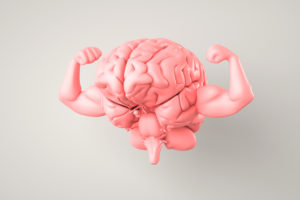
Thank goodness exercise is something that can be done by anyone and anytime. Despite the
advancement in medical sciences, researchers argue about its importance and countless
advantages. From the cardiologist’s clinic to the orthopedic
surgeon’s operation table, its importance is vital. Above all, it is challenging for the humans to
optimize what is important in their lives. Mental and emotional health must be a top priority.
If you where told that physical exercise will improve your mental and emotional health, would you
believe it?. Numerous studies and research say it’s about taking care of the brain. In general
individuals who exercise regularly remain more energetic throughout the day, think positively, sleep
better at night and have a sharper memory.
Let us delve deeper and see how exercise affects mental health and promotes a good mood. Here
are a few mental health-related benefits:

⦁ Exercise promotes a better sleep quality:
Regular moderate to intensive exercise has a foremost role in improving sleep quality. Many researchers emphasize that it is due to the rise in core body temperature, which returns to normal post-exercise and induces sound and uninterrupted sleep. Good quality sleep helps boost the mood as well, making “a good sleep brings good laughter” accurate.
⦁ Exercise makes the mood better:
You come back frustrated, sad, or angry after a long day at the office. My advice is to do some intense workouts! Science says that neurotransmitters like endorphins and adrenaline are released during intense exercise sessions, which boost your mood, wipe out your worries, and improve your self-esteem.
⦁ Exercise improves memory and attention span:
During athletic sports such as football, badminton, or basketball, your blood pressure rises, and the brain receives more oxygen, like your muscles. This phenomenon causes positive changes in blood flow that lead to improved sharper memory and better attention spans.
⦁ Exercise helps treat depression:
Exercise is the most potent and underrated antidepressant. Mild to moderate depression can be treated by just inculcating physical activity as an alternative to antidepressant medication. As little as 10 minutes of walking or running could reduce the risk of depression by 25%. It stems from positive changes in the brain, such as reducing inflammation, improving blood supply, endorphins release, and neural growth. It also encourages the production of endorphins, a powerful chemical that energizes you.
⦁ Exercise relieves the anxiety:
Anxiety is a mood disorder often rooted in overthinking and inability to perform daily tasks. If you experience anxiety, here is one more medication to add to the treatment. Exercise keeps your mind occupied, hence preventing you from overthinking. Regular moderate to intense exercises relieve tension and stress and boost mental and physical capabilities. Research studies have shown that a few symptoms of anxiety, like tremors and rapid breathing, can be reduced significantly by regular physical activity. You can opt for aerobic exercise or strength training, but yoga is the best for most people. It calms you down, makes you the master of your thoughts, and channels the overthinking to a positive space where they don’t bother you anymore.
⦁ Exercise relieves stress and tension:
You know you’re stressed out when severe symptoms like head, neck, and shoulder aches are always there! Other symptoms include muscle tension and tightness in the chest, heart pounding, and cramps. Severe forms of stress can also station you deep into insomnia, stomach aches, disturbed bowel movements, and heartburn. You can seek a therapist or start exercising today. Countless studies have shown a very positive impact of exercise on managing stress and reducing stress-related events. One theory suggests that intense exercise releases endorphins, which produce a relaxing effect and relieve body pain.
⦁ Exercise lowers grief and PTSD:
Grieves are the first step to depression. If not the grief, the incidents that give rise to post-traumatic stress disorder. A multisystem approach to dealing with PTSD also inculcates lifestyle modification and exercise to hasten the recovery process. Various researchers have vouched that 30 to 60 minutes of aerobic, strength exercises and yoga can help treat PTSD much faster.
⦁ Fighting addictions and drug abuse:
A group of scientists think that exercise plays a crucial role in fighting addictions. The point is that drugs act on some parts of the brain to give pleasure. The neurotransmitters released during intense physical activity also act on the same portions of the brain. That’s why many think that sports and workouts can stand in the way of addictions and promote recovery in rehabilitating people.
⦁ Other benefits on mental health:

Not only does exercise improve your physical fitness, but it also boosts your mental health. As a common saying goes, “Good things come to those who sweat”. Exercise improves other brain functions and mental health, such as improvement in self-confidence, social bonding with peers and the gym community, and sharp memory and thinking improves cognitive skills. If you are a student, you can expect better academic performance due to improved memory and prolonged attention span.
Exercise has a very positive influence on mood and overall mental health. You don’t have to force yourself to spend hours in the gym. Just take 30 minutes from your schedule. Once you get a taste of exercise and its impact on your mental health, it can be added to a self-care toolkit! So what are you waiting for? Pull your socks, tighten your laces, and start running today! The medicine adds days to your life, but the exercise adds life to your days!
References & Citations:
Mental health
Mayo Clinic: Depression and Anxiety
Harvard Health
The Effect of Physical Activity On Sleep
Exercise Training Improves Memory